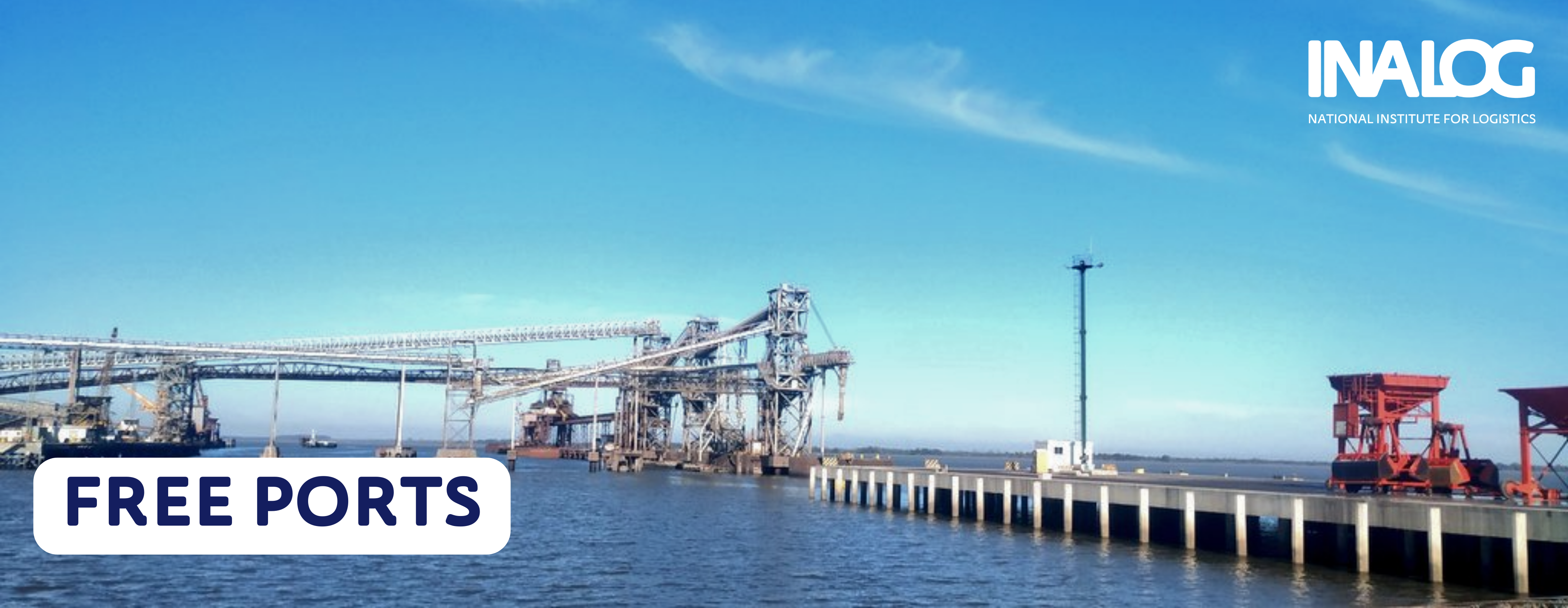 The characteristics of this unique regime in the South American Atlantic coast have led to the implementation of the Regional Distribution Centers located on the very gateway to and from the region.
The characteristics of this unique regime in the South American Atlantic coast have led to the implementation of the Regional Distribution Centers located on the very gateway to and from the region.
By the Ports Act and its regulations Uruguay has been scaled as a highly efficient alternative port.
Reference to free ports includes references to port bonded spaces, offering special fiscal and customs regimes, including the free circulation of goods, not requiring any authorizations or formal procedures.
FREE CIRCULATION OF GOODS
No formal authorization or formal procedure required. The mobility inside the port is documented through a Simplified Electronic Message to the National Customs Directorate. Length of goods storage in the port warehouses has no limitations.
LENGTH OF STORAGE OF THE GOODS
The new regulation incorporated through the C.A.R.O.U. establishes that goods that enters into the ports may remain for a maximum of five years.
FREE DESTINATION OF GOODS
As no previous permits or claims are required to move the goods, their destinations may be changed freely.
TAX FREE
All the merchandise and goods entering the national territory from abroad are free from any customs duties, fees and taxes applicable to imports or upon entry.
When the goods are introduced into the national customs territory, they are considered as imports, and only in those cases they are subject to the appropriate taxes.
VAT – Circulation of goods and delivery of services within the premises are exempted from Value Added Tax.
NETWORTH TAX – The goods deposited under the Free Port scheme are not comprised in the taxable basis for the purpose of Net worth Tax.
INCOME TAX – The taxes derived from profit activities conducted by natural or legal persons from abroad, with foreign goods that are moved in transit through the national customs territory, as well as in port warehouses, and not destined to that territory, will be exempted from any Income Tax.
ACTIVITIES CONDUCTED AND DIFFERENT WAYS OF WAREHOUSES AT FREE PORTS
Since the adoption of the Uruguayan New Customs Code (C.A.R.O.U.), warehouses are not limited to those numbered by the article 2 of the Law 16.246 and its Regulatory Decrees. The same have been expanded, covering a larger range of possibilities, all in accordance with the provisions of the C.A.R.O.U.
a) STORAGE WAREHOUSE: The goods may only undergo operations aimed to: ensure the recognition, preservation, lot splitting or volume fractioning, and any other operation that does not alter their value or change their nature or features.
b) COMMERCIAL WAREHOUSE: The goods may undergo operations aimed to: facilitate their trading, increase their value or alter their nature or status.
c) OVERHAUL AND MAINTENANCE WAREHOUSE: Used for goods that may be subject to repair and maintenance services, not modifying their nature.
d) TEMPORARY STORAGE WAREHOUSE FOR EXHIBITIONS AND SIMILAR ACTIVITIES: storage of foreign goods entered for the purpose of trade shows, demos, fairs or similar activities, following the authorization of the National Customs Directorate.
e) LOGISTICS WAREHOUSE: the goods may undergo operations that alter their status or nature, provided their origin is not altered; those activities may consist of: assemblage or mounting; mixes; insertion or replacement of parts, pieces or accessories; setup of hardware; installation of software; packing, packaging, labeling or addition of other products always used for the marketing of goods that are to exit the warehouse; and other similar operations established by the Executive Power.
OPERATIONS
The companies, and in particular port operators, shall keep comprehensive, appropriate and updated records of the goods handled, deposited or stored, received and delivered, shipment by shipment and separated by each storage site.
The port services are provided in the country’s commercial ports 24 x 7 every single day of the year, if required.
This regime is applied in the country’s main port, as well as in the rest of the commercial ports capable of receiving vessels from overseas.
DOWNLOAD FILES
REGULATORY DECREE 412/992 – REGULATES FREE PORTS LAW – 01.09.1992
LAW 19.276 – URUGUAYAN NEW CUSTOMS CODE (C.A.R.O.U.) – 19.09.2014
REGULATORY DECREE 99/2015 – REGULATES LAW 19.276 – 20.03.2015
